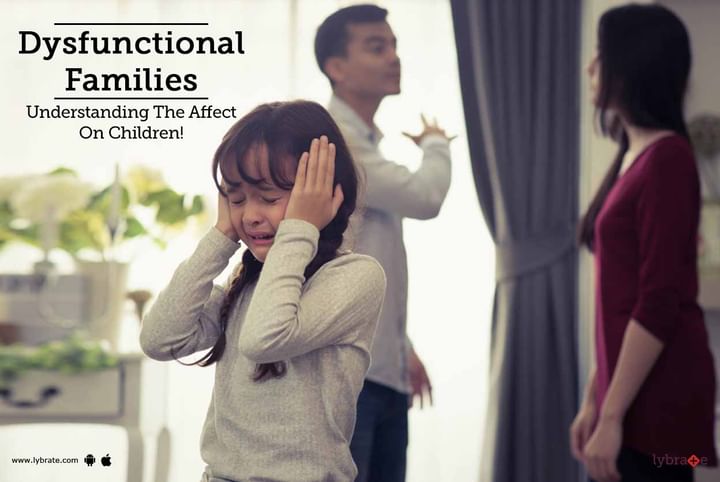Get the App
For Doctors
Login/Sign-up
Last Updated: Jan 10, 2023
BookMark
Report
Dysfunctional Families - Understanding The Affect On Children!
Dr. Priya JhaPsychologist • 41 Years Exp.PG Diploma In Clinical Training, Psychology, MA - Psychology, BA - Psychology
Some families have a destructive core. Children born into these families sometimes may get badly affected by the dysfunction in the family. This is because they do not understand what is happening around them. This can even affect their adult years. Some of the effects of dysfunctional families on children are:
- Low Self-Esteem: When children see trouble around them, they often believe that they are the cause of it. Since the actual issue has nothing to do with them, nothing they do improves the situation. This can make them feel like a failure and as though nothing they do is good enough. Over time, this can lead them to develop a very low self-esteem.
- Self-Destructive Behavior: Children in dysfunctional families are largely ignored and not given the guidance they need. This can make the child act out in the hope of getting noticed or make him turn rebellious. Addiction to alcohol and drugs is often associated with dysfunctional families. The child may also turn to petty thefts, bullying and arson or drop out of school.
- Stress: In many dysfunctional families, young children are forced to become carers. For example, a divorce can leave one parent mentally unstable and force the child to grow up faster than he or she should. This puts a lot of pressure on the child and exposes them to stress at a very young age. There are many ill effects of stress including a deterioration of physical and mental health and these can be noted in almost all children who belong to such families.
- Troubled Relationships: Children learn from what they see. When they are brought up in a dysfunctional family, they begin to believe that this is part and parcel of all relationships. Hence, it may cloud their relationships as adults. When it is their turn to be parents, they may unconsciously inculcate rules and ideas from their own childhood. This furthers the dysfunctional family cycle. On the other hand, children from such families may also grow up to be loners and may have difficulties forming any kind of relationship
- Trust Issues: Children growing up in dysfunctional families realize that many situations have two stories associated with them; one that they remember and another that their parents talk about. For example, a child may remember a party at a time when their parents were arguing horribly but the parents may talk about it as a wonderful day. This makes it difficult for children to trust themselves as well as trust others.
In case you have a concern or query you can always consult an expert & get answers to your questions!



+1.svg)
